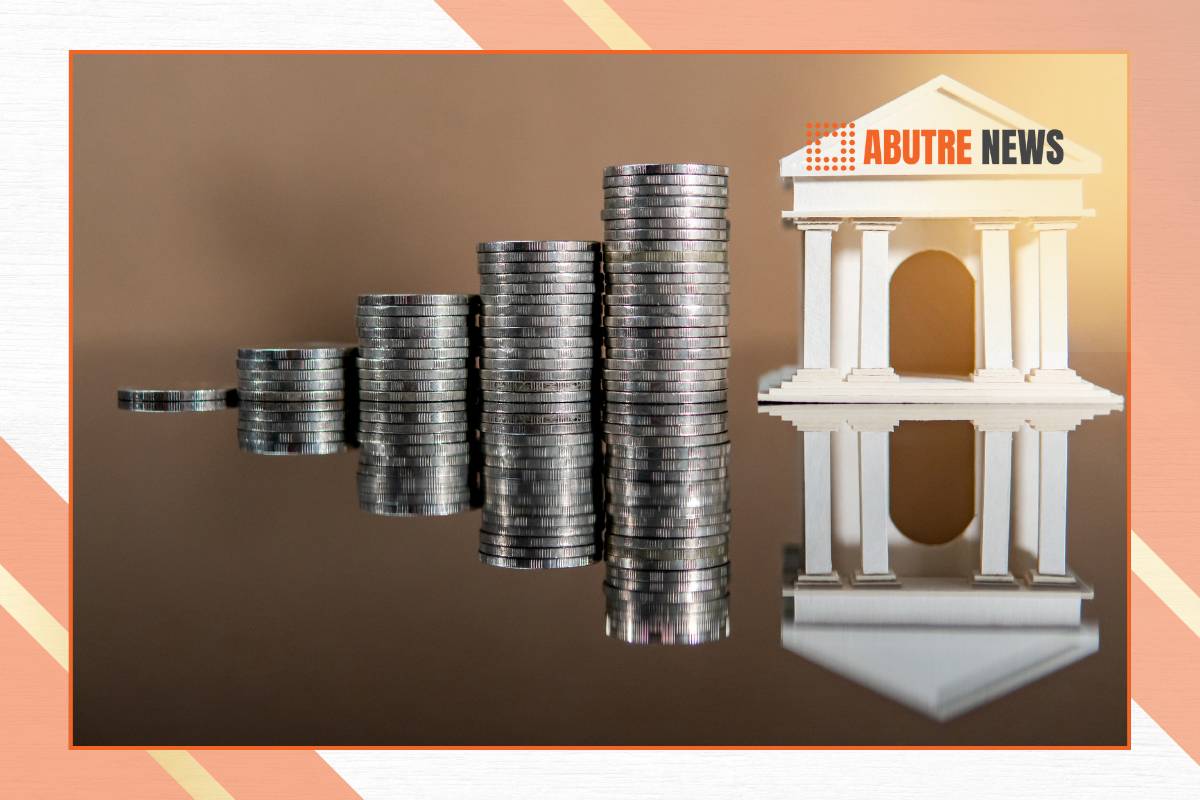We recommendation is:
How to Manage Your Money Through Financial Apps in 2024

Feeling lost in the world of money apps? Fear not, Canadians! This guide breaks down the best financial apps for 2024, helping you manage your money with ease. Budgeting, investing, taxes, tracking – you name it, there’s an app for it! Discover how these tools can boost your financial well-being in the exciting world of digital finance.
What are Financial Apps?
Financial apps are software applications designed to assist users in managing their personal finances directly from their smartphones, tablets, or computers. These apps offer a range of services, including budgeting, expense tracking, investment management, and financial planning, among others. They are tailored to provide users with real-time insights into their financial health, empowering them to make informed decisions.
What are the Advantages of Financial Apps?
The advantages of utilizing financial apps are manifold:
- Convenience: Access your financial data anytime, anywhere.
- Real-time tracking: Monitor transactions and account balances in real-time.
- Budgeting: Set and adhere to budgets, reducing the likelihood of overspending.
- Investment guidance: Get personalized advice to optimize your investment strategy.
- Security: Advanced encryption and security measures protect your financial information.
Different Types of Financial Apps
Budgeting Apps
Budgeting apps help users create and stick to a budget by tracking income and expenses. They categorize spending, making it easier to identify areas where you can cut back.
Investment Apps
These apps provide tools for trading stocks, managing portfolios, and receiving personalized investment advice, making them indispensable for both novice and seasoned investors.
Canadian Tax Apps
Tailored for the Canadian tax system, these apps assist in organizing tax-related documents, calculating taxes owed or refunds due, and even filing tax returns electronically.
Expense Tracker Apps
These apps allow users to record their daily expenses, categorize them, and analyze spending patterns over time, offering insights into potential savings.
Savings Apps
Savings apps encourage users to save money through various methods, including rounding up purchases to the nearest dollar and automatically transferring the difference to savings.
How Financial Apps Can Optimize Your Time
Financial apps can be great tools for optimizing your time and making managing your money easier and more efficient. Here are some key ways they do this:
Automation:
- Bill pay and transfers: Schedule automatic payments for bills and recurring expenses, eliminating the need to manually do it each month.
- Savings goals: Set up automatic transfers to different savings accounts for specific goals, like a vacation or down payment.
- Investing: Invest your money automatically through robo-advisors, which make decisions based on your risk tolerance and goals.
Organization and Tracking:
- Account aggregation: View all your financial accounts in one place, saving you time from logging into multiple apps or websites.
- Categorization: Automatically categorize your transactions, making it easier to track spending and identify areas where you can cut back.
- Budgeting tools: Set a budget and track your progress in real-time, helping you stay on track with your financial goals.
Insights and Advice:
- Spending analysis: Get insights into your spending habits, helping you identify areas where you can save money.
- Financial goals analysis: Track your progress towards your financial goals and get recommendations on how to stay on track.
- Personalized tips: Receive personalized tips and advice based on your financial situation and goals.
Convenience and Accessibility:
- Mobile access: Manage your finances anytime, anywhere with the convenience of a mobile app.
- Fast transactions: Pay bills, transfer money, and make other financial transactions quickly and easily.
- Paperless statements: Go paperless and receive your statements electronically, saving time and reducing clutter.
Here are some additional points to consider:
- Not all apps are created equal: Choose an app that offers the features and functionalities that are most important to you.
- Security is paramount: Use a reputable app with strong security features to protect your financial information.
- Start small: Don’t try to automate everything at once. Start with one or two features and gradually add more as you get comfortable.
By using financial apps effectively, you can free up your time and focus on what’s important to you, while still achieving your financial goals.
Best Financial Apps in 2024
There are many great financial apps out there, but the best ones for you will depend on your specific needs and preferences. Here are a few of the top-rated options in different categories:
Budgeting:
- YNAB (You Need a Budget): This app uses the zero-based budgeting method, which assigns every dollar a job. It’s great for people who want to get really hands-on with their finances.
- EveryDollar: This app is a good option for beginners who want a simple and easy-to-use budgeting tool. It’s based on Dave Ramsey’s financial principles.
Investing:
- Acorns: This app rounds up your spare change to the nearest dollar and invests it in a diversified portfolio of ETFs. It’s a great way to start investing with small amounts of money.
- Stash: This app allows you to invest in fractional shares of stocks and ETFs. It’s a good option for beginners who want to start investing with a small amount of money.
- M1 Finance: This app allows you to create custom investment pies and invest in fractional shares of stocks and ETFs. It’s a good option for more experienced investors who want to have more control over their portfolios.
Banking:
- Chime: This online bank offers a checking account with no monthly fees and no overdraft fees. It also allows you to round up your spare change to the nearest dollar and save it.
- Ally Bank: This online bank offers a variety of banking products, including checking accounts, savings accounts, and CDs. It’s known for its high interest rates and low fees.
- Axos Bank: This online bank offers a variety of banking products, including checking accounts, savings accounts, and CDs. It’s also known for its relatively high interest rates and moderate low fees.
Other:
- Mint: This app is a great all-in-one tool for tracking your finances. It can connect to all of your bank accounts, credit cards, and investment accounts, and it can help you track your spending, create budgets, and monitor your credit score.
- Empower: This app is another great all-in-one tool for tracking your finances. It can connect to all of your bank accounts, credit cards, and investment accounts, and it can help you track your spending, create budgets, and monitor your net worth.
- Oportun: This app helps you save money by automatically transferring small amounts of money from your checking account to your savings account. It’s a great way to save money without even thinking about it.
While many of the apps mentioned above operate in Canada, here are some popular financial apps specifically designed for Canadians:
Budgeting:
- Wealthsimple Cash: This is a free budgeting app that offers a no-fee spending account, automatic savings tools, and personalized money insights. It integrates with Wealthsimple Invest for a holistic view of your finances.
- KOHO: This is a prepaid spending card with budgeting features like spending categorization and real-time balance tracking. It also offers cash back rewards on everyday purchases.
- Tangerine MySpend: This budgeting app is linked to Tangerine bank accounts and offers features like bill pay, savings goals, and spending insights. It’s particularly useful for Tangerine customers.
Investing:
- Wealthsimple Invest: This is a robo-advisor platform that offers automated investing with low fees. It creates personalized investment portfolios based on your risk tolerance and goals.
- Questwealth Portfolios: Another robo-advisor platform, Questwealth offers personalized investment portfolios and human financial advisors for more complex investing needs.
- National Bank Direct Investing: This online discount brokerage platform offers a wide range of investment options, including stocks, ETFs, and mutual funds. It’s suitable for more experienced investors who want more control over their portfolios.
Banking:
- Simplii Financial: This online bank, owned by CIBC, offers a no-fee chequing account with unlimited transactions and high-interest savings accounts.
- EQ Bank: This online bank offers high-interest savings accounts and GICs with no monthly fees.
- Neo Financial: This neobank offers a no-fee chequing account with cashback rewards and other features.
Other:
- Moka: This app helps you save money automatically by rounding up your spare change and investing it in a diversified portfolio of ETFs.
- Splitwise: This app helps you track and split shared expenses with friends and family.
- Paymi: This app allows you to send and receive money instantly between friends and family using your phone number.
These are just a few of the many great financial apps available. Before you choose an app, be sure to consider your needs and preferences and do your research to find the best option for you.
Financial Apps: How to Use Them Best
To maximize the benefits of financial apps:
- Regularly Update Information: Keep your financial information up-to-date for accurate insights.
- Set Clear Financial Goals: Use apps to track progress towards your financial goals.
- Leverage Notifications: Enable alerts for bill payments, budget limits, and investment updates.
Financial Apps: Things to Avoid
- Over-reliance: While apps are helpful, personal judgment and financial literacy are indispensable.
- Ignoring Security: Always use apps with robust security features to protect your financial data.
Conclusions
Financial apps represent a paradigm shift in money management, offering tools that were once the preserve of financial professionals to the general public. As we advance into 2024, these apps continue to evolve, offering more personalized, intuitive, and comprehensive financial services. Whether you’re looking to better manage your budget, enhance your investment portfolio, streamline your tax filing, or simply gain better insight into your spending habits, there’s an app out there for you.





